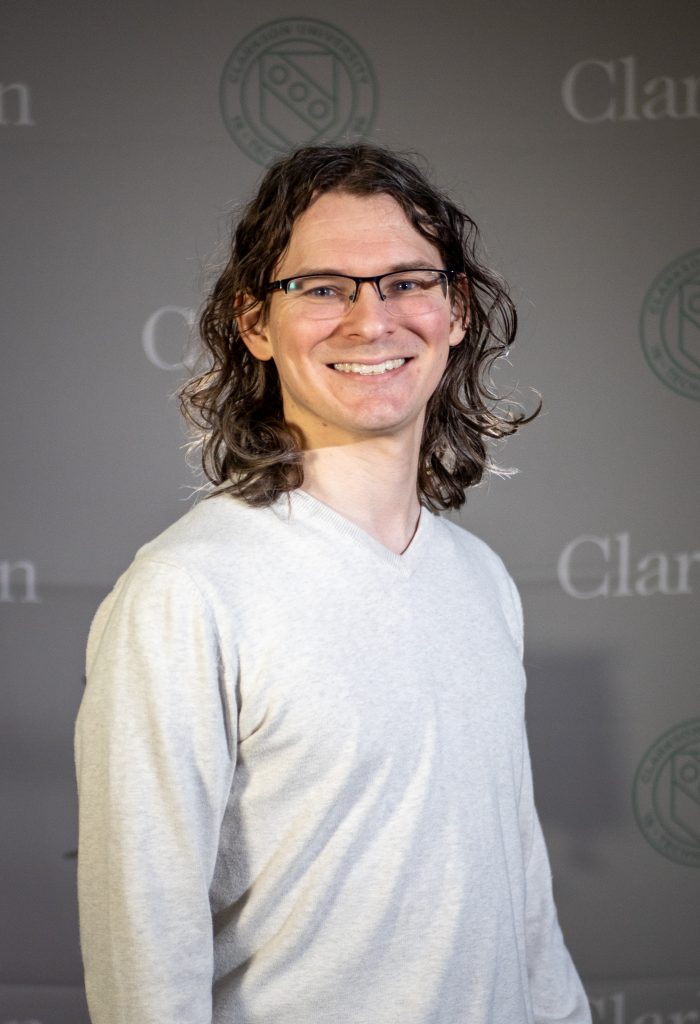In February, Clarkson University President Marc P. Christensen, Ph.D., P.E. announced that Matthew Manierre has been granted tenure and promoted from assistant professor to associate professor of sociology in the School of Arts & Sciences.

A native of Glastonbury, Conn., he received his bachelor’s degree in sociology in 2010, graduating summa cum laude from Eastern Connecticut State University. He received his master of arts degree and his Ph.D., both in sociology, from the University of Delaware. Manierre came to Clarkson in 2016.
Dr. Manierre’s research interests are broad and interdisciplinary, and his work has been published in journals such as Gerontologist, Research on Aging, Journal of Engineering Education and Social Science and Medicine. His primary areas of expertise are in the areas of medical sociology and research methods. Dr. Manierre’s teaching and research routinely address health disparities in the United States, with a special focus on aging. This has resulted in publications that focus on methodological challenges in studying “successful aging” and the use of public transportation as means of increasing social engagement amongst the elderly. He is currently working on a project investigating rural communities’ characteristics and their linkages to gender disparities in health.
Throughout his career, Dr. Manierre has engaged in collaboration with researchers from other institutions and fields. He has helped design and implement surveys on contraception use amongst low-income women, and he has published several papers looking at feelings of energy and fatigue among college students. At the moment he is collaborating with Clarkson engineers to conduct interviews with firefighters that can be used to inform the design of assistive exosuit technology.
Dr. Manierre is also very interested in pedagogy and teaching. During the early COVID-19 pandemic, he led a team of Clarkson researchers to interview 43 faculty from the region. The results of these interviews shed light on the ways that faculty adapted (and refused to adapt) their teaching philosophies in light of the pandemic. On several occasions, he has also presented on alternative grading methods such as “ungrading” and specifications grading.